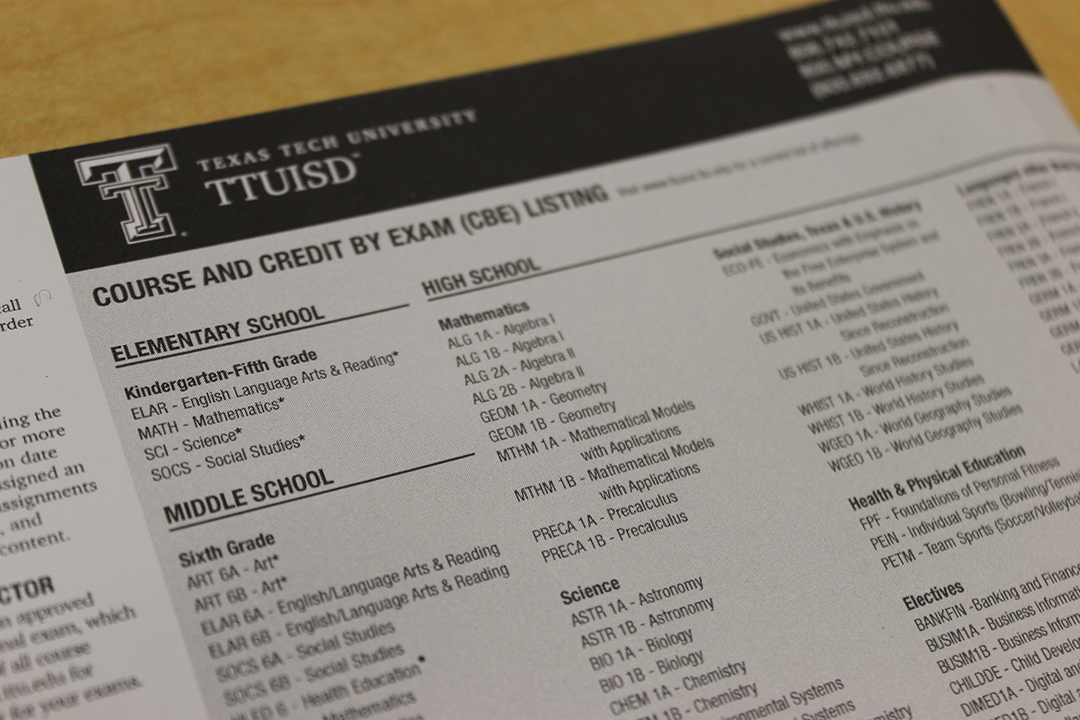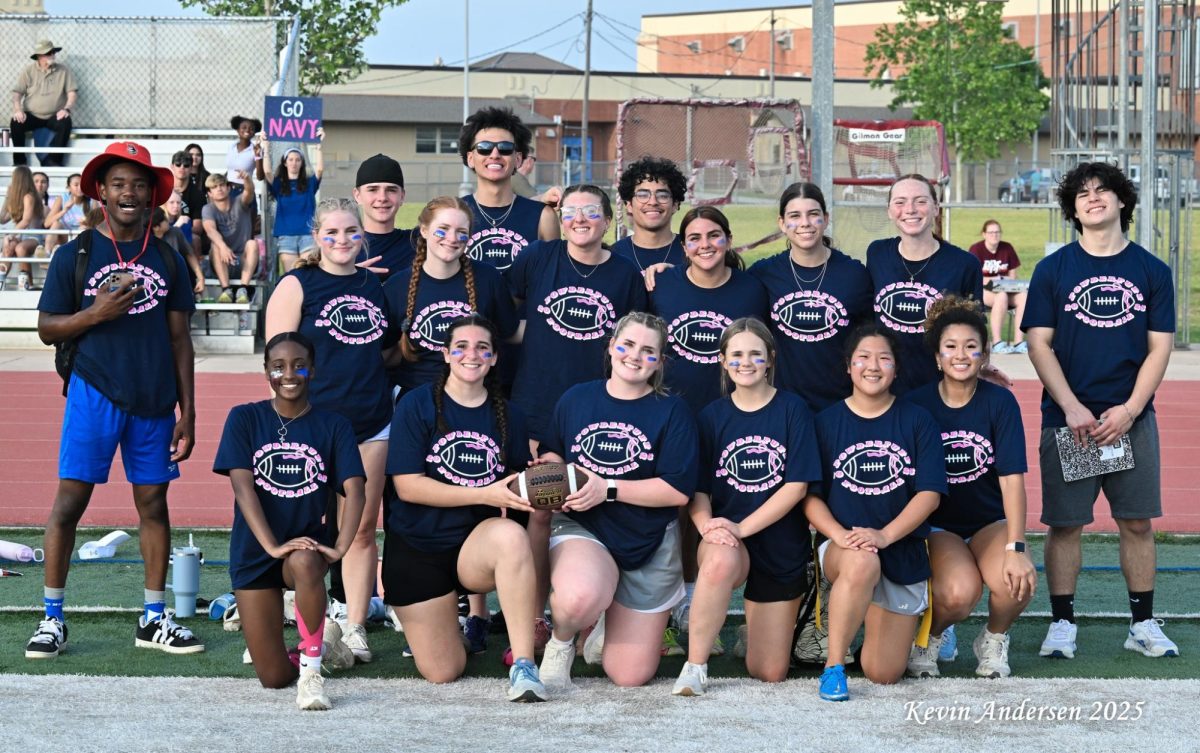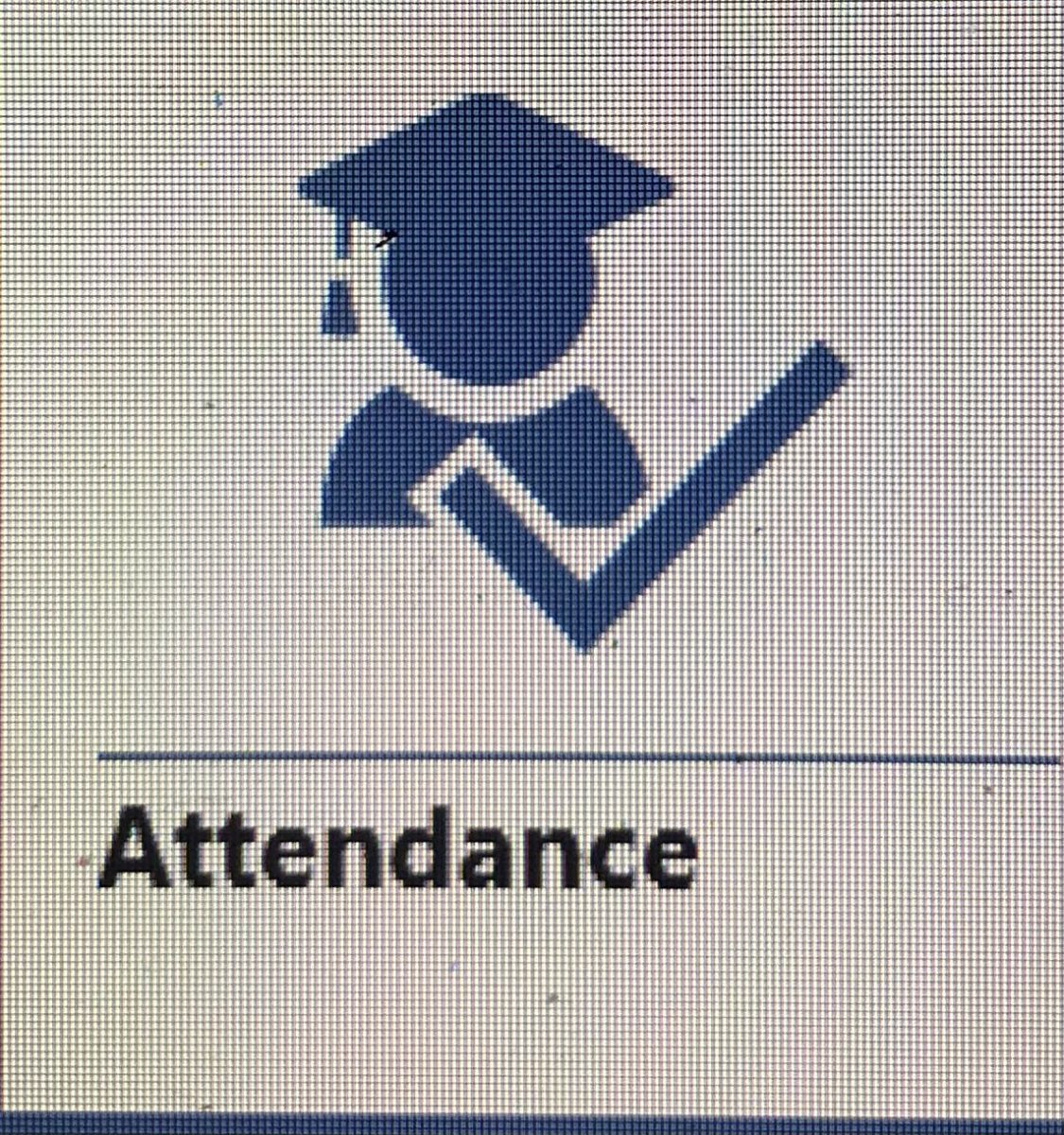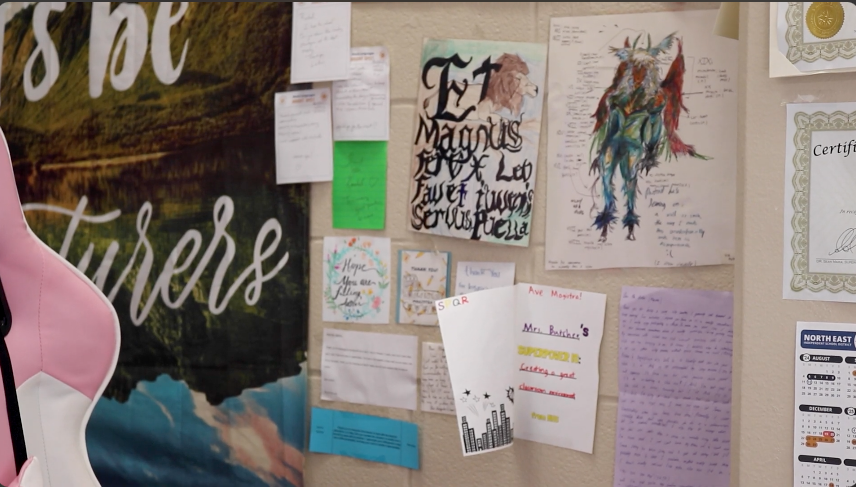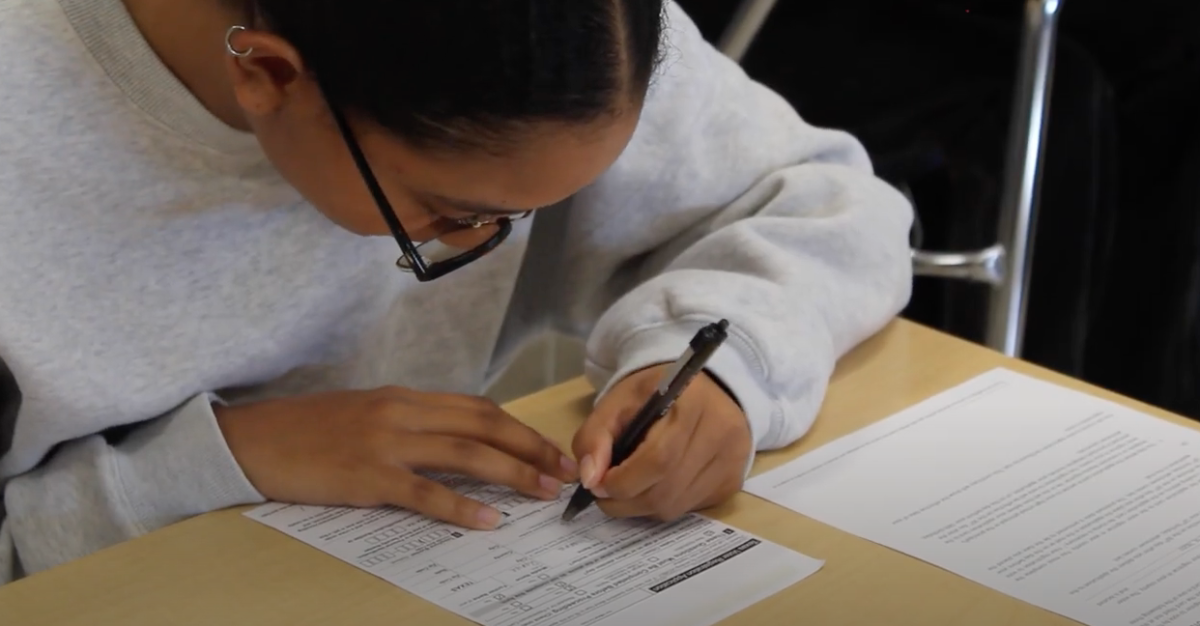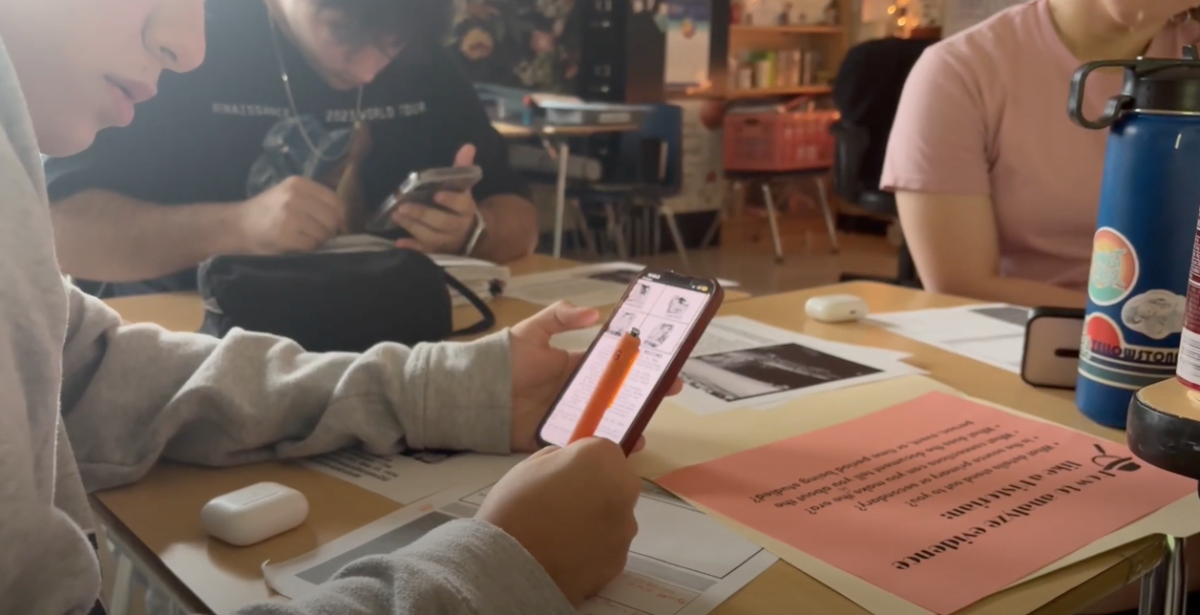by Emma Fitzhugh | news editor
Every year, students are asked to fill out a course card, in which they can sign up for courses they would like to take. Typically, student’s enroll in at least one English, math, science, and social studies course, in addition to elective and foreign language courses. But for junior Taylor Sorenson, the majority of these classes, all necessary for graduation, have already been taken.
“I just felt like I wanted more of a challenge out of school, and I felt like I wanted to move on to life in college sooner. I wasn’t doing this for a certain college, I was just deciding that I wanted to get on with life, and was ready to move on from my school. That’s what I was thinking,” Sorenson said.
Like Sorenson, students have the opportunity to earn the minimum 22 credits necessary for graduation prior to their senior year. By completing courses online- either through Texas Tech University or the University of Texas, through night school, summer school, or an approved online university, students are able to earn credits that would otherwise be earned after completing four years of high school.
“So I just talked to the counselor, and all you need to do is you need to get enough credits for it, so I just spent the summer after my freshman year taking summer classes. And then if you get enough credits to be considered a junior; I was able to get enough credits to be able to skip a grade. So that’s how it works,” Sorenson said.
After setting up a graduation plan with his counselor, Sorenson then spent the summer after his freshman year completing several courses, all offered through Texas Tech University.
“There are different ways you can do summer classes. I did most of mine online, I took English II, Pre-Calculus, Chemistry, Latin II, Speech and P.E. That was just after freshman year, and I didn’t take any last year [summer],” Sorenson said.
However, just like classes taken during the school year, students who complete courses online still have to pass an exam in order to earn credit for that course.
“I also took what’s called a CE, a credit-by exam. For most of my classes I just took the stuff online through Texas Tech, and then the school gave me credit for that. And then for Pre-Calculus and English, at the end of the summer, I came and took a test at central office, and if I got a good enough grade on that, then they [CTJ] would give me credit for the classes,” Sorenson said.
According to Sorenson, the decision to graduate prior to 2016 was a personal choice that required extensive research, but he does have a specific plan for after high school.
“I just had to work it out with the counselor, and it was just like get some logistics figured out, but that’s how it works. I’m probably going to attend BYU-that’s what I’m thinking. I’m applying for the 2015 fall. So I’m just trying to finish off this school year, and then when the next school year starts I’ll be in college,” Sorenson said.
Even though sophomores are typically only able to take two AP classes, Sorenson’s case seems to be an exception.
“They [NEISD] only let two AP classes count, because they usually only let sophomores take two AP classes, but I took five. I didn’t take any during the summer; those were my first AP classes. They let me take five because I was willing to not have the classes count for my rank, but I still wanted to learn the material and take the AP test,” Sorenson said.
Since he was able to earn enough credits to skip his sophomore year, Sorenson was able to complete his junior classes last year, thereby allowing him to take senior classes this year. However, determining his class rank is “kind of complicated,” admits Sorenson.
“I’m still ranked with the juniors right now. It’s [rank] kind of high, it’s not great- I’m like number 40. But since I wanted to take more AP classes last year then they [NEISD] usually let sophomores take, I took something that’s called pass-fail. Basically it doesn’t count towards rank for me, which was a little bit frustrating because I don’t get the multiplier, so I’m still ranked with the juniors technically. Even though I’m considered a senior,” Sorenson said.
However, skipping a grade appears to be something that runs in Sorenson’s family, who went on to explain how his mom also skipped a grade in high school. But ultimately the decision to take online courses seemed to be beneficial.
“It was my idea to do this. I wouldn’t say the online classes were more difficult, it’s just that during the summer, there’s like not a teacher hanging over you making sure you get everything done, so it’s self-motivated. And that’s what made it a little bit more effort to get done,” Sorenson said.
In fact, according to counselor Desiree Meza, students who attend summer school through NEISD will complete a semester course over a period of 14 days in which there is face-to-face teacher instruction.
“Students are required to attend class from either 8:00 a.m. to 12:00 p.m. or 1:00 to 5:00 p.m. Monday through Thursday, and are allowed to take a maximum of two credits through summer school. Courses completed through correspondence, or online, are self-paced where students have the flexibility to log in at their leisure to complete assignments and quizzes. Students will take their final exam for a correspondence course at Johnson where their assigned counselor will proctor the exam,” Meza said.
If students wish to earn credits through correspondence, there are currently two universities that students can choose from, according to Meza.
“We accept correspondence courses through TTUISD and the University of Texas at Austin K-16 Education Center. Various high school courses are offered, including math, science, social studies, English, fine arts, and others. These courses, however, must be paid for by the student,” Meza said.
Whether a student chooses to complete courses online or during the school day, credits can be obtained either way- so long as the student completes the course in its entirety and passes the necessary exam. Despite this fact, there seems to be several reasons as to why a student may want to obtain credits online rather than enrolling in the corresponding classes at school, even excluding early graduates.

“Surprisingly yes, I do have several students who have chosen to take online courses. I currently have 17 seniors enrolled in an online course, and 11 of those 17 are completing their speech credit,” Meza said. “They may have chosen this route to free up room on their schedule to take another course, or perhaps they have a bit of social anxiety and preferred the online atmosphere. Out of the other few students enrolled in online courses, the majority are completing a PE or health credit.”
Naturally, some students may have more credits than other students, so some may chose to take just an elective course online, versus others, like Sorenson, who take advanced courses.
“Enrollment in online courses varies by student and depends on their individual situation and educational plans. If a student’s goal is to graduate early then we will sit down and map out what courses they will need to complete in the regular school day, and what courses they will complete through other means, such as correspondence school, evening school, or summer school,” Meza said.
Depending on how many courses a student successfully completes outside of school, a student’s graduation plan may need to be readjusted.
“Graduation plans vary by each student’s cohort year. For our students in tenth through twelfth grade we offer the minimum, recommended, and distinguished graduation plan. We start each student on the recommended plan and adjust as needed. If a student were to be moved to the minimum plan there would typically be a parent/student conference where their counselor would discuss the benefits of staying on the recommended plan. If it is decided that the student will be changed to the minimum plan, there is an agreement form that must be signed by the student, parent, counselor, and an administrator,” Meza said.
There is still the option of graduating on the distinguished plan however, as long as students meet the specific criteria for this plan, which is different than the recommended plan.
“On the other side of that, students also have the option to be a distinguished graduate if they meet the criteria. In order to earn a distinguished graduate diploma, a student must have met all of credit requirements and earn at least four advanced measures. Both the recommended and the distinguished plan consist of 26 credits, however the distinguished plan requires three years of a foreign language and four elective credits,” Meza said.
These advanced measures can be obtained in a variety of ways, according to Meza.
“Students may earn an advanced measure by receiving a score of a three, four, or a five on a College Board AP exam, earning a qualifying score on the PSAT/NMSQT test during their junior year, and/or having a semester grade of at least an 80 in a dual credit class, and that’s one measure per semester. Students who meet the distinguished graduate criteria will have this designation coded on their transcript,” Meza said.
Despite the fact that courses can be completed through either Texas Tech University or the University of Texas, these are not college-level courses.
“Students enrolled in correspondence courses are not considered ‘college’ students. Courses completed through TTUISD or UT Austin are high school courses and will be posted to the student’s high school transcript once the course has been completed,” Meza said.
Meza went on to say that if a student would like to complete a course that has an EOC/STAAR test associated with it, that course(s) should be completed during the “regular school day”. In addition, if students would like to find out more information about completing courses outside of school, a specific form should be filled out by the student, in which a formal request can be made to speak with said student’s counselor.
But for Sorenson, even though completing these courses required several hours of academic commitment, he feels as though he is now adequately prepared for college.
“Over the summer after my freshman year I, it was a lot of work to get all of the classes done, like I was working about five hours a day. So that actually helped me like get more serious about school and helped me get a good work ethic for school. So I think that helped me- my classes weren’t that challenging last year,” Sorenson said.
To view a complete list of all of the credits necessary for each graduation plan, click here.


